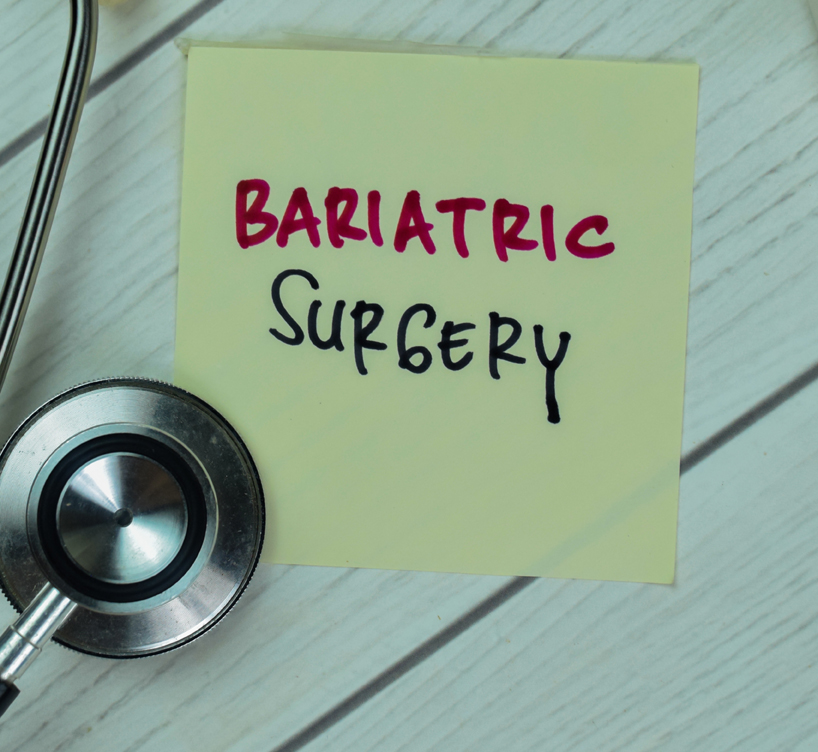At-A-Glance
- The three most popular weight loss surgeries in the U.S. are Gastric Sleeve Surgery, Roux-En-Y Gastric Bypass, and Lap/Gastric Band Surgery; each has advantages and disadvantages.
- Sleeve gastrectomy involves removing the left side of the stomach, leaving a small banana-shaped stomach, which restricts the amount of food you can eat at one time, helping you to feel full faster; this procedure has acid reflux as a frequent complication.
- With lap/gastric band surgery a band is placed around the upper part of your stomach to create a small pouch to hold food so that you feel full after eating a small amount. Perhaps less reflux than the sleeve surgery, but not as good as the Roux-en-Y.
- The Roux-En-Y Gastric Bypass involves making the stomach small and then attaching it to the small bowel about three feet down bypassing the duodenum; this surgery is often performed if reflux is too severe following sleeve gastrectomy.
Note: Respiratory Reflux (RR) and Laryngopharyngeal Reflux (LPR) are synonyms and the terms can be used interchangeably. Going forward, I prefer the term RR and so should you; it is easier to pronounce, more intuitive, more comprehensive, and implies that RR can affect any and all parts of the respiratory system, which it does.
As our modern lifestyle and fast-food choices have contributed to the dramatic rise in obesity over the past decade, causing serious illness such as cancer, diabetes, and heart disease, people are desperate for solutions to manage their weight and prevent premature death. The CDC estimates that ~ 40 % of U.S. adults are obese, and 9% are severely obese. A person is considered obese when their body mass index (BMI) is 30 kg/m or higher.
Bariatric Surgery is surgery performed on the stomach and/or intestines for weight loss. The three most popular weight loss surgeries in the U.S. today are Gastric Sleeve Surgery (60%), Roux-En-Y Gastric Bypass (30%), and Lap/Gastric Band Surgery (10%); each has advantages and disadvantages. All of the procedures appear to me equally effective for weight loss (~67%). A common question that I get asked is, “Does gastric sleeve surgery cause acid reflux?”
Disclaimer: Bariatric surgery is not my area of expertise; indeed, I have never seen one of these surgeries performed. That said, I have had many reflux patients who presented to me after bariatric surgery. Many who previously had reflux got worse after the bariatric procedure; and some who hadn’t previously had reflux developed it after. I have discussed this topic with colleagues, and looked at some of the bariatric surgery literature.
Most Common Bariatric Surgery Options
Gastric sleeve surgery is the most common weight loss surgery performed in the U.S. and around the world. This minimally invasive surgery removes about 60-80% of the stomach, and patients lose 60-70% of excess body weight within 1-2 years afterward.
Sleeve gastrectomy is performed laparoscopically (without a big incision) involves removing most of the left side of the stomach, leaving a small banana-shaped stomach, which restricts the amount of food you can eat at one time, helping you to feel full faster; this procedure as compared to other bariatric procedures does have acid reflux as a frequent complication. The downside is that the lower esophageal sphincter may be compromised so that new-onset reflux or worsening of preexisting reflux is the most common complication of the sleeve procedure.
The Roux-En-Y Gastric Bypass involves making the stomach small and then attaching it to the small bowel about three feet down the line bypassing the duodenum; the Rou-en-Y is the usual go-to “reflux salvage” procedure for patients with sever reflux following the sleeve or lap/band surgery. Rou-en-Y is about five-times better than sleeve surgery with regard to post-op acid reflux. As for other complications, the Rou-en-Y can be associated with malabsorption, and many people need to take supplemental vitamins.
With lap/gastric band surgery a band is placed around the upper part of your stomach to create a small pouch to hold food so that you feel full after eating a small amount; and this procedure can be adjusted allowing food pass more slowly or quickly through your stomach. This procedure appears in increase reflux less than sleeve surgery; however, the most common complication that may develop with band surgery is that the stomach pouch enlarges.
There are other variables, such as institutional bias, surgeon bias, and previous abdominal surgery that may influence your choice (and your surgeon’s choice) of bariatric procedure. However, if you already have severe acid reflux, the roux-en-Y may be your best option. Discuss all you options with the surgeon.
What To Do If You Have Reflux Following Bariatric Surgery
Unfortunately, there is no way to cure acid reflux caused by bariatric surgery (especially gastric sleeve surgery) since the stomach and/or intestines have been altered. You’ll need to maintain an long-term anti-reflux regimen and take medication for the rest of your life. Here’s what I recommend:
Sleep on an incline.
Don’t eat late at night; your last meal should be at least 5 hours before bed.
Take a swallow of Gaviscon Advance Aniseed after dinner and before bed
Anti-secretory medications (aka H2 receptor agonists; e.g., famotidine and cimetidine)
Maintain a low-acid, low fat diet
For more information on a low acid diet, you can find my books on Amazon: Dropping Acid: The Reflux Diet and Cure and Dr. Koufman’s Acid Reflux Diet.
If you would like to schedule a virtual consultation with me, you can book an appointment online.










